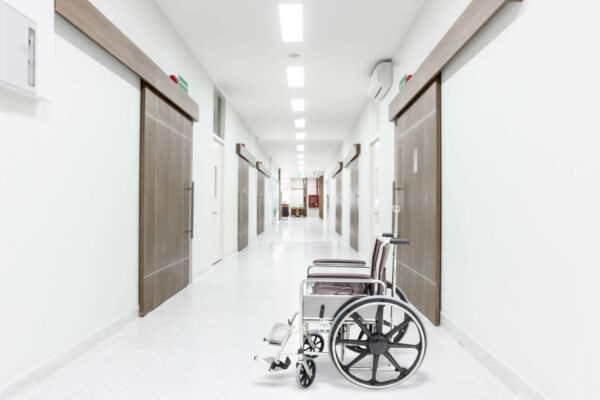NHS Injury Costs Recovery Scheme – Updated Guidance 2022-2023

The NHS Injury Cost Recovery Scheme (ICR) sets out the circumstances where costs for NHS treatment to an injured person can be recovered from those responsible for causing an injury. In short, such costs can be recovered from a third-party compensator / insurer upon the payment of damages for injury caused. It includes re-imbursement to the NHS for ambulance journey costs and allows for contributory negligence to be taken into account when a calculation of the charges due is made.
On 28 April 2022 the guidance relating to the application of the NHS ICR scheme for 2022 – 2023 was updated and having had a read of the update I thought it was worth sharing some key elements of the update as well as some existing key principles in relation to the scheme.
The first key change from the guidance is that the Department for Health and Social care have increased the treatment and ambulance journey charges. The applicable tariff depends on when the accident occurred and increases on 1 April of each year. The increase this year is relatively significant compared to previous years as can be seen by the table below:
| ACCIDENT ON OR AFTER: | OUTPATIENT | INPATIENT | CAP | ABULANCE CHARGES PP / PER JOURNEY |
| 1.4.22 | £766 | £941 | £56,260 | £231 |
| 1.4.21 | £744 | £915 | £56,682 | £225 |
| 1.4.20 | £743 | £913 | £54,682 | £224 |
| 1.4.19 | £725 | £891 | £53,278 | £219 |
There are two important rules that underlie the tariffs and are worth knowing. The first is that inpatient charges take priority over outpatient charges and both are not recoverable. So if an injured person receives both inpatient and outpatient treatment in relation to an injury then only the inpatient treatment is recoverable. The second is that money is re-payable in chronological order with transportation costs coming first, followed by inpatient treatment and so on. This is important where the costs may be significant and where the cap may be reached.
One of the main issues that can arise in relation to the calculation of sums due to the treatment provider is in relation to contributory negligence. If an injured person either accepts (by agreement) or is found to have been partially responsible for their injury then the percentage split on liability should be reflected directly and in the same proportions on the NHS costs certificate. This makes it important to agree a precise percentage split in some cases in order to reduce the charges payable. If a claim is settled on a global sum basis without any specific agreement on the basis of contributory negligence (if applicable) then this will make it difficult for the charges to be reduced.
There is a right of review and appeal in respect of NHS charges on three grounds. Firstly, that the amount claimed is wrong (this is why it is important to know the tariffs and the principles underlying the tariffs), secondly, when the claimed amount takes account for treatment that was not required as a result of the accident and thirdly, when the payment of compensation was not one which attracted NHS charges. A review will be conducted in the first instance and internally by the CRU. If this does not resolve the matter then a formal appeal will be heard and evidence will be needed from the treatment providers as to what treatment was administered and when. Any medical evidence obtained in the course of litigation may also be relevant to issues such as causation and whether all treatment was provided as a result of the tortious act in question.
The guidance can be found on www.gov.uk – NHS injury cost recovery scheme.
Disclaimer
This content is provided free of charge for information purposes only. It does not constitute legal advice and should not be relied on as such. No responsibility for the accuracy and/or correctness of the information and commentary set out in the article, or for any consequences of relying on it, is assumed or accepted by any member of Chambers or by Chambers as a whole.
Contact
Please note that we do not give legal advice on individual cases which may relate to this content other than by way of formal instruction of a member of Gatehouse Chambers. However, if you have any other queries about this content please contact:


